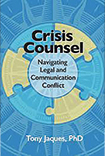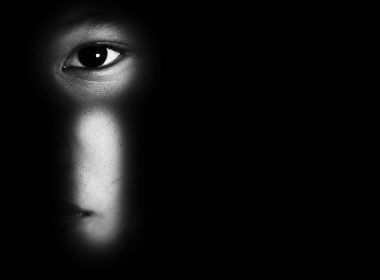Lawyers are increasingly being called on to provide counsel in crises, and some firms are even offering in-house communications advisory. But research shows lawyers’ advice does not always fit neatly with that of other communications experts.
Conflicts between legal and comms departments are hardly new. While public relations (PR) experts are typically not reluctant to share their opinions about lawyers, lawyers have not in the past had a right of reply. So, we set out to determine what lawyers think their role should be as communicators in a crisis.
Crisis communications firm SenateSHJ interviewed lawyers in Australia and New Zealand while its PR partners overseas interviewed experienced lawyers in Canada, the USA and the UK. The research was qualitative rather than quantitative, so 24 lawyers were interviewed in this initial study. You can read the full report here. The result is a sample of evidence highlighting the conflict between legal and communications advice is still very real.
Which aspects of PR are lawyers fearful of?
While most lawyers agreed that the relationship with communicators was improving, one key area of conflict remains around disclosure. That is – how much to say, how much to keep back, when to say it, and who to say it to. Lawyers are worried that a communicator’s preference to be open and transparent can result in letting slip information that might lead to possible liability or future litigation.
Many of the lawyers interviewed were also concerned about the lack of legal awareness among communicators.
Another perceived area of potential conflict is balancing speed and accuracy. Almost every lawyer emphasised the need for certainty before communicating in a crisis. But this response showed little appreciation that in a genuine crisis, quick decisions are often required based on what is known at the time. Often, the information is very basic and communicators simply have to make do.
One British lawyer conceded: “Lawyers are generally not good at reaching a decision too quickly”, while another asserted the need for speed is seldom a significant issue: “in truth, it is rare for a company to suffer any long-term damage by taking a little time, particularly where this can be justified”.
Other areas that lawyers considered particularly challenging included communicating during litigation, business ethics and professional privilege, and the vexed question of if, how and when to apologise.
While some of the lawyers echoed the famous quip by American litigator Edward Bennett Williams, “nothing is always a good thing to do, and almost always a brilliant thing to say”, most acknowledged the more modern position that communication in a crisis is essential and saying nothing can cause irreparable damage to reputation.
WHERE DO LAWYERS AND PR CLASH?
Differences in opinion about disclosure – how much to say, how much to keep back, when and how to say it
Perceived lack of legal awareness among communicators
Varying degrees of balance between speed and accuracy
Worries about communicating during litigation
Business ethics
Professional privilege
How and when to apologise
The report “Crisis Counsel: What lawyers truly think of crisis communicators” forms part of a new book by Tony Jaques – Crisis Counsel: Navigating Legal and communication Conflict (Rothstein Publishing 2020).
Who should take the lead in a crisis – lawyers or PR?
Most lawyers thought they should be the ones to take the lead in a crisis. Some went even further, saying they could not envisage crisis situations when the communicator should take the lead.
When asked to nominate the main strength they would bring to a crisis, the most common response from the lawyers was not their legal expertise, but their ability to be calm and predictable. Several noted that they are “officers of the court” and accordingly have a duty to integrity and truth, and honestly representing the law. One Canadian respondent added a further strength as being able to see beyond the strict letter of the law. “A strength we bring,” he said, “is knowing what is appropriate and good judgment, not just what is legally possible.”
The distinction between legality and good judgment triggered a reputational crisis when Utah-based online outdoor gear seller Backcountry.com hired a California law firm to help protect its trademark. The firm launched legal action against dozens of small brands for alleged trademark infringement of the word backcountry. The story gained national prominence after a newspaper exposé headlined, “Is it bullying or just business?”
Facing a consumer outcry, Founder and CEO Jonathan Neilson dropped the lawsuits and dismissed his legal advisors. While he accepted the law firm had been acting on their behalf, his public apology said in part: “We fumbled in how we pursued trademark claims recently. We made a mistake. In an attempt to protect the brand we have been building for nearly 25 years, we took certain actions that we now recognise were not consistent with our values, and we truly apologise.”
As crisis communicators, we would say it was a model of a genuine apology and avoided finger-pointing.
Dropping the lawyer hat in preference for empathy and humanity can equally go a long way to protecting reputation. In a classic case in 1984, a gunman entered a McDonald’s restaurant in San Isidro, California, and shot and killed 19 customers. With the company’s communication staff fielding more than 1,000 media calls a day, Don Horwitz, the company’s General Legal Counsel, told them: “I don’t want you people to worry or care about the legal implications of what you might say. We are going to do what’s right for the survivors and families of the victims and we’ll worry about the lawsuits later.”
In the spirit of Don Horwitz, respondents in our survey recognised that lawyers and communicators need to develop a better understanding and appreciation of each other’s roles in a crisis. This, they said, was the key to achieving the best possible outcome for the organisation.





